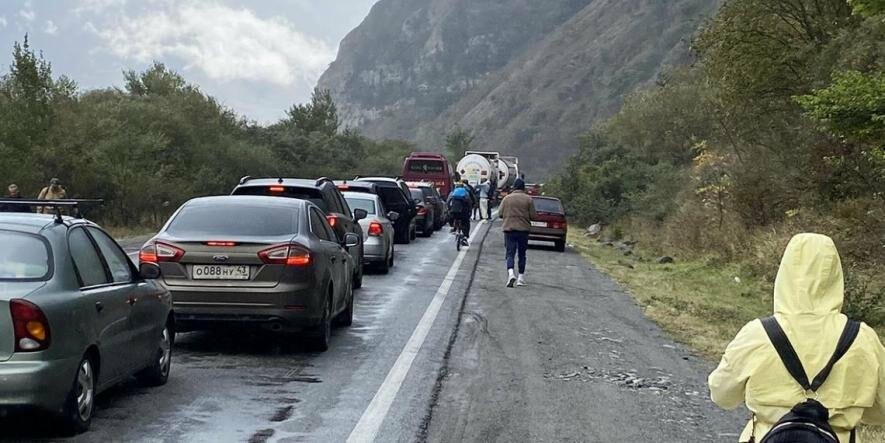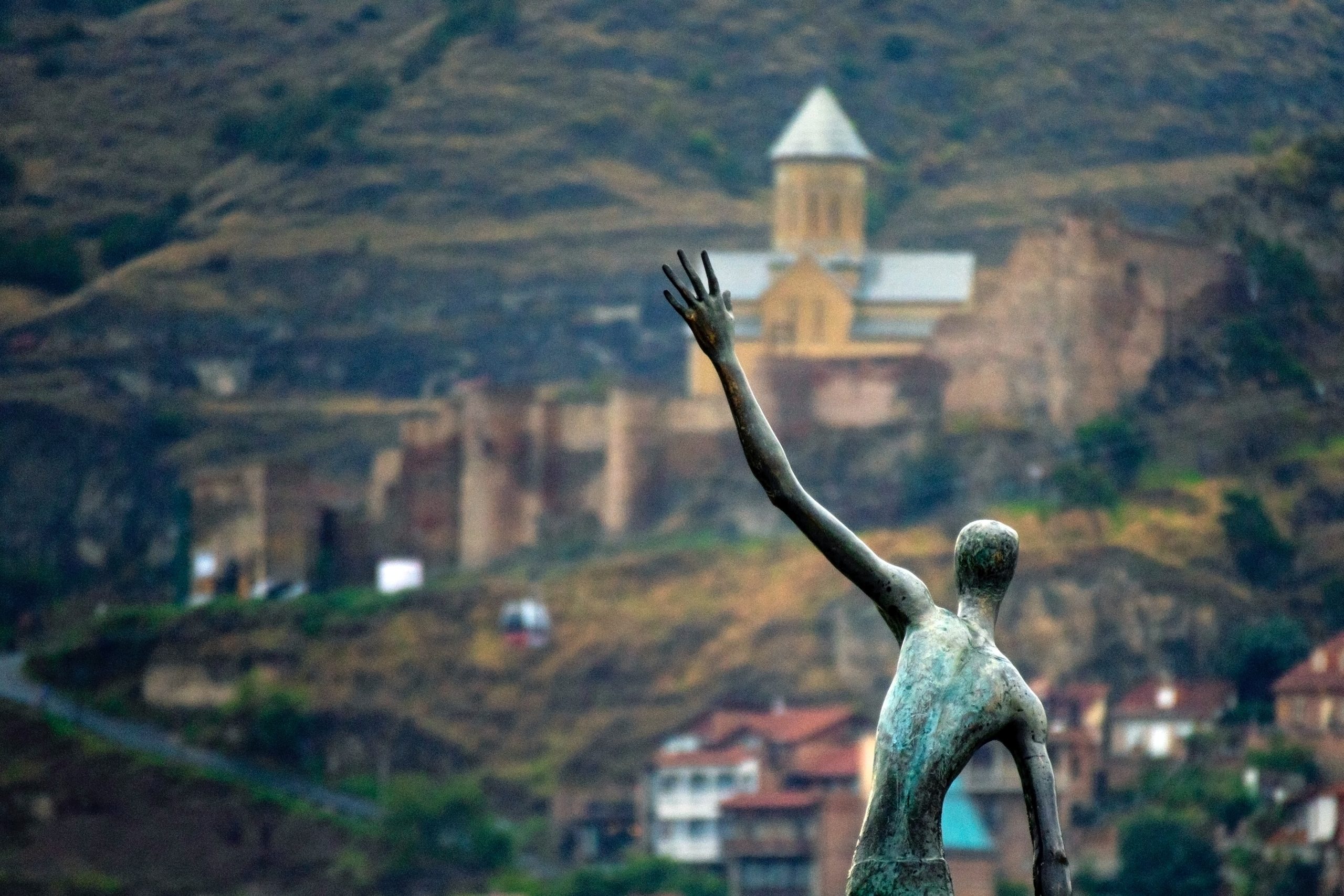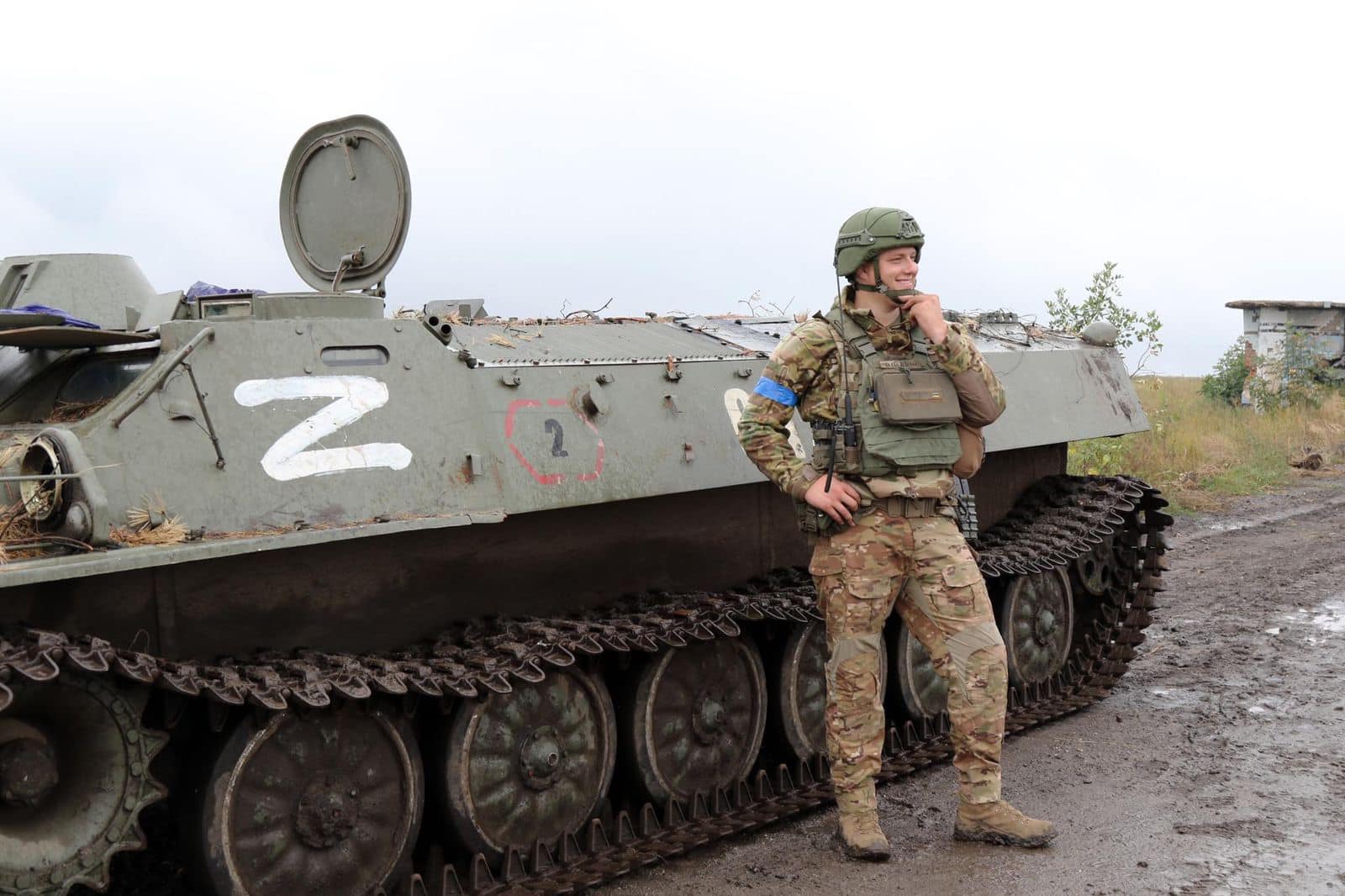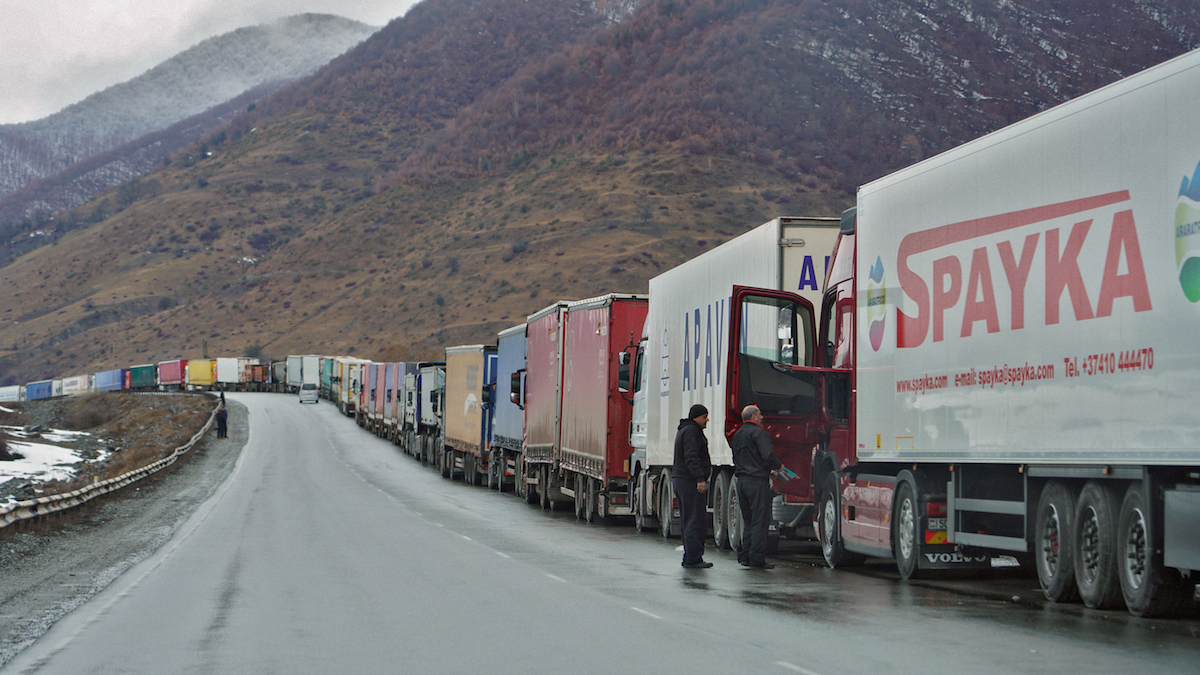“The letter Z is on every third car” - how a Russian traveled from Moscow to Tbilisi
Crossing the Russian-Georgian border
Dmitry, 24, is a Russian citizen. He got to Georgia on September 25 through the Verkhny Lars checkpoint, where a huge line of cars has been standing for a week since the announcement of mobilization in Russia in hopes of crossing the Russian-Georgian border.
On September 26 the line reached 30 kilometers, according to eyewitnesses and local media. Tens of thousands of men of draft age are fleeing Russia with their families to anywhere Russians do not require a visa. Georgia is one of the main destinations.
Since the beginning of September, thousands of Russian citizens have been crossing the Russian-Georgian border. But since September 21 when mobilization was announced in Russia, about 10,000 have crossed the border daily, Georgian Interior Minister Vakhtang Gomelauri said on September 27.
He did not give an exact figure of how many Russian citizens have entered Georgia after September 21. However, he stressed that the figure stated by journalists – 250,000 – is incorrect. He also added that about 60% of Russian citizens who enter Georgia leave for other countries.

“On September 23 at 3am, I left Moscow on a minibus that carries parcels from Moscow to Tbilisi and back.
“The driver was Georgian, my father knows him. My father is Georgian, my mother is Russian. I was born and raised in Moscow and I don’t know Georgian. I wanted to leave for Georgia back in February, but I couldn’t manage it financially.
“But I saved most of my salary after February when Russia started the war in Ukraine. I knew I would have to leave anyway.
Crossing the Russian-Georgian border
It was a cargo bus, there were only two passengers. The second guy was, like me, a Russian citizen with a Georgian surname.
“We drove through Voronezh, Rostov, Krasnodar and Vladikavkaz. When we arrived in Voronezh, the picture on the roads changed dramatically.
“In Moscow, we rarely saw Z on cars [Russian patriotic symbol of the war in Ukraine – JAMnews], but in the regions it is very common.
“In Rostov, about every third car had a Z sign – on cars, trucks, motorcycles.”
“Also striking was a lot of military equipment from Voronezh to Rostov. There are tanks at the roadside in many places.
“Police blocked roads in Kabardino-Balkaria. From each person they demanded 15,000 rubles [approximately $260] for travel.
“The police are everywhere in the North Caucasus. They stand at every intersection. In some places the road is blocked and if you pay them, they let you through.
“On the way from Moscow to Upper Lars, money was taken from us at every turn.
Crossing the Russian-Georgian border
“We went to Vladikavkaz through Ingushetia. A huge column was moving in the same direction, mostly cars with Moscow plates.
“When we got to the North Caucasus, there were significantly fewer cars with Z on the windshield, compared to Rostov and other Russian regions.
“We were stopped in Ingushetia. They took our passports. The police ordered us to fill out an application for conscription into the army. We told them that we were escorting parcels to Vladikavkaz. But then it turned out they were just scaring people.
“There are posts at every crossroads in Vladikavkaz but we managed to get through. At 11am on September 25 we reached the border. Ahead was a huge column of cars. It was 20 kilometers to the check-in point when the line began.
Crossing the Russian-Georgian border
“Many were walking with things. You can’t cross the Russian-Georgian border on foot, but people planned to get into someone’s car in empty seats closer to the checkpoint. Business is also built on this, they charge a huge fee for a free seat. I was told that a seat in a car costs $800-1,000.
“They also traveled on bicycles and even on scooters, since these vehicles were allowed to cross the Russian-Georgian border. Local residents in North Ossetia have launched a business near the border selling bicycles and scooters. A bike costs from 10,000-50,000 [from $200 to $900].
“So many people crossed the border. If you pay more, you will be brought to the border on a special motorcycle, but this is much more expensive.
“Entrepreneurial people have created a whole system of profiting from this situation.
“By eight in the evening we had another 11 kilometers of line ahead of us.
“At three in the morning on September 26, four kilometers remained. And this is only because our driver knew some local police officers and often drove sections of the road in the oncoming lane.
“When there were three kilometers left, we got off the bus, took our backpacks and decided to walk to the border.
“Our driver gave our details to the Russian border guards in advance and they let us through without question. They just took our passports, stamped them and returned them. But I met a man there who paid 10,000 rubles [about $200] for just this.
“Another friend of mine, 30 years old, said that he was asked a lot of questions about where he works, whether he is in the military, whether he received a draft order. He works as an engineer in the housing department in Moscow. He served in the army, which means he is subject to the mobilization announced in Russia. But he was still allowed to pass.
“From the Georgian side, there was a long line at passport control. We stood there for at least two and a half hours. These were people who had abandoned their bicycles and scooters on the Russian side.
“On the Georgian border, I also had no problems. Maybe because I have a Georgian surname. But they didn’t ask me a single question.
“However, the Russians were not asked many questions either.
“The Georgian side has more control over the North Caucasians, Muslims – Dagestanis, Chechens. They are all brought to a separate room where they are questioned for a long time.
“Many of those who were refused were in no hurry to return to Russia. Sheets of cardboard were laid out on the floor of the checkpoint, and quite a few people were lying or sitting on them.
“One Chechen told me that he was going to stay there for at least two weeks. He wanted to wait for some time, because if he returned, he would either be mobilized and sent to the front or punished.
“I was surprised that he hoped that all this would be settled or over in two weeks.
“I think I myself will have to stay in Georgia for at least nine months. I am waiting for the arrival of two more friends. They will fly to Kyrgyzstan, they bought tickets there for $1,700. And from there they will fly here.
“I don’t know yet what I will do in Tbilisi and how I will live. But any situation is better than staying in Russia.
“If Ukraine wins this war, and Russia collapses, then a civil war will begin there. In any case, Russians should not expect peace in the near future.”
Crossing the Russian-Georgian border





















